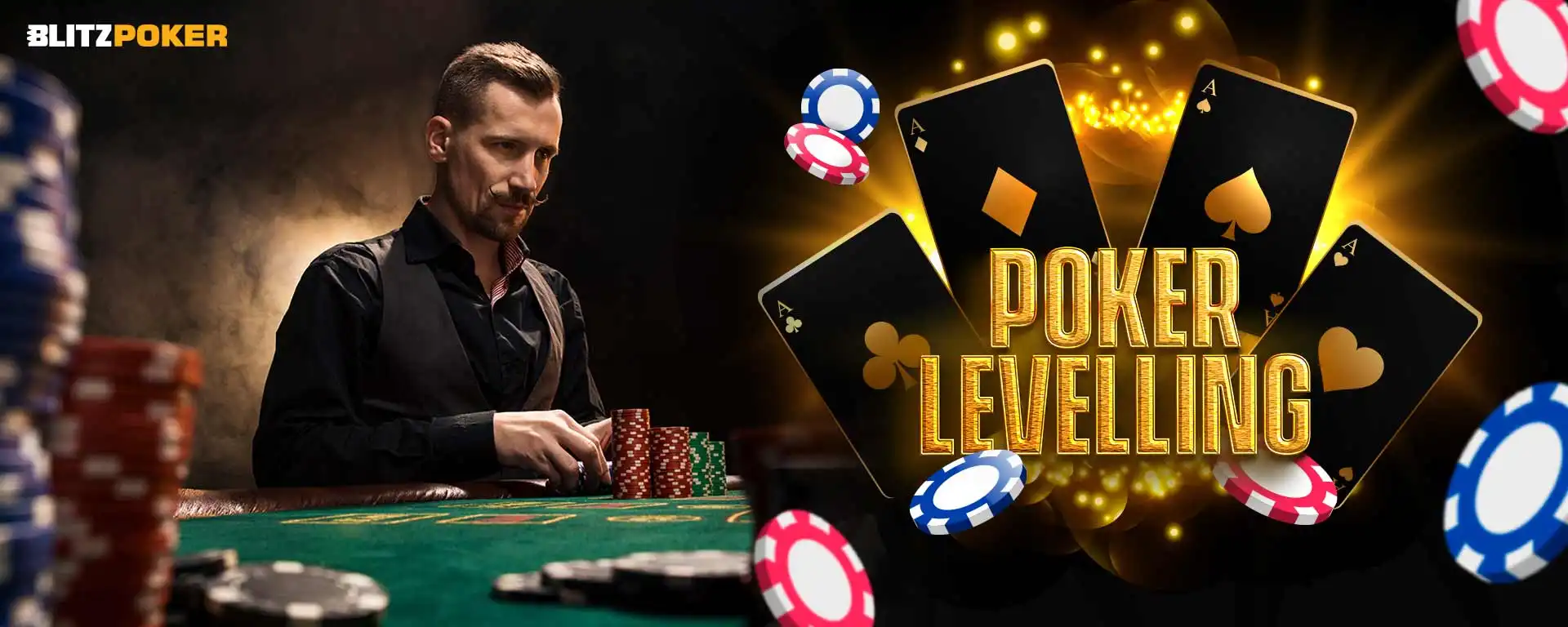Poker Levelling
In Poker, players attempt to outsmart or outmanoeuvre their opponents by predicting their thought process by adjusting their actions accordingly. Poker levelling is the strategic art of anticipating your opponents’ thought processes and adjusting your actions accordingly, often known as multiple-level thinking. BLITZPOKER provides the perfect platform to hone your skills and compete against players from around the country.
In poker, this concept involves looking beyond the cards in your hand and considering all the other factors that could influence the outcome of a particular hand. It’s about understanding that the strength of your hand is just one piece of the puzzle, and many other variables at play can impact the decisions you make.
What Poker Levelling Means and How It Works
So, when someone talks about poker levelling, they’re basically talking about a mental game. It’s all about trying to outsmart your opponent by guessing what they think of you.
In simple terms, when you “level up,” you’re trying to figure out what your opponent thinks about you and adjust your game plan accordingly. But here’s the thing: getting too caught up in levelling battles with seasoned players can be risky. It can distract you from the basics of the game and lead to bad decisions.
Plus, if you’re too focused on what your opponent is thinking, you might miss important clues in the game. Understanding the history of poker psychology is key to grasping the idea of levelling in the game. Players have always tweaked their strategies to get an edge, from basic tactics way back when to today’s advanced game theories.
What Are the Levels of Poker Players? | Levels of Poker Levelling
Poker levelling is about understanding how deeply your opponent thinks during a game. Different players think at different levels, and figuring out where your opponent stands can help you make smart moves. Here are the levels:
Level 0: I don’t think. These players don’t really think about what their opponents might have or do. They’re usually beginners and pretty easy to play against.
Level 1: What do I have? Here, players focus on their own hand and how strong it is. They might not pay much attention to what their opponent could have.
Level 2: What does my opponent have? At this stage, players start thinking about what cards their opponent might be holding. They look at their opponent’s moves and try to guess their hand.
Level 3: What does my opponent think I’ve Got? Now, players start considering how their opponent sees their hand. They try to predict their opponent’s next moves based on what they’ve done.
Level 4: What does my opponent think I think they’ve got? This level goes deeper. It’s not just about what your opponent thinks of your hand, but also what they think you think of theirs.
Level 5: What does my opponent think I think they think I’ve got? This is the highest level. Players here are thinking many steps ahead, trying to guess what their opponent is thinking about their hand, and what they think about what you’re thinking. It’s like a poker mind game within a mind game!
The Benefits of Levelling in Poker
If you’re really good and can figure out how your opponents play most of the time, levelling can help you a lot. You might win hands you shouldn’t and make others fold even when they’re winning big.
Some modern players, who follow a Game Theory Optimal (GTO) model, don’t like levelling much. But done right, it can be a smart move. If you’re into levelling poker games, you’ll be intimidating at the table. Your opponents won’t dare to bluff against you. Being a levelling champ is like the cherry on top. But getting good at it needs practice, patience, and guts.
Also See: Poker Ranges: Ranging Your Opponents Right
Should You Be Levelling in Poker?
After learning what poker levelling means and seeing examples, you might wonder if it’s for you and how much you should do it. Honestly, most of the time, levelling involves a lot of guessing. You can’t know for sure what level your opponent is thinking on.
So, maybe stick to your usual style of play or try to play as close to GTO as you can. You might end up outsmarting opponents who make a bunch of mistakes. But with certain players, levelling can be a game-changer. You might pull off moves that wouldn’t work against others. If people see you as a wild bluffer, mix it up sometimes. Fold hands or make small bets occasionally, to throw them off.
On the flip side, if you’re known for playing tight, go ahead and make bold moves. Bet big, and people might hesitate to call without a killer hand. It’s good to level occasionally but don’t go overboard. Trying to level all the time can leave you feeling lost and annoyed, cause most of it is just guesswork.
